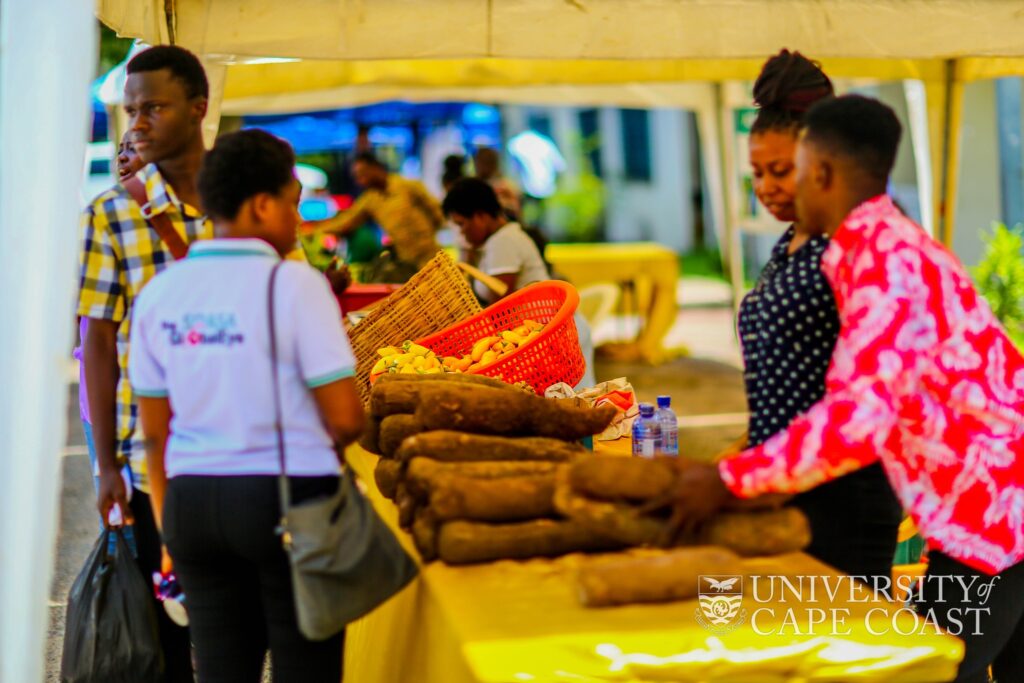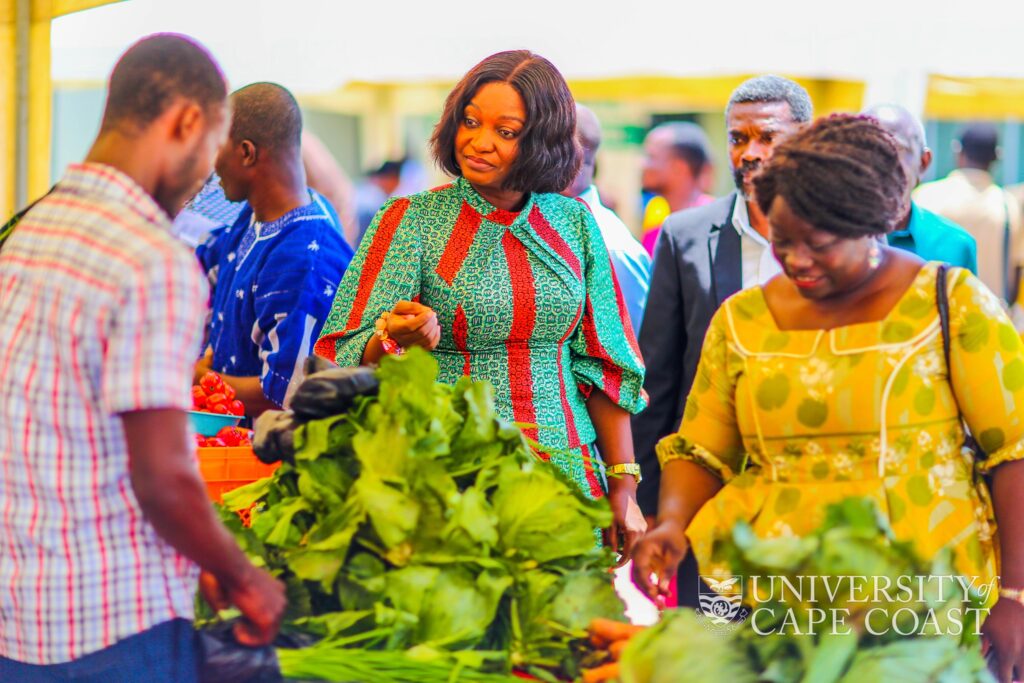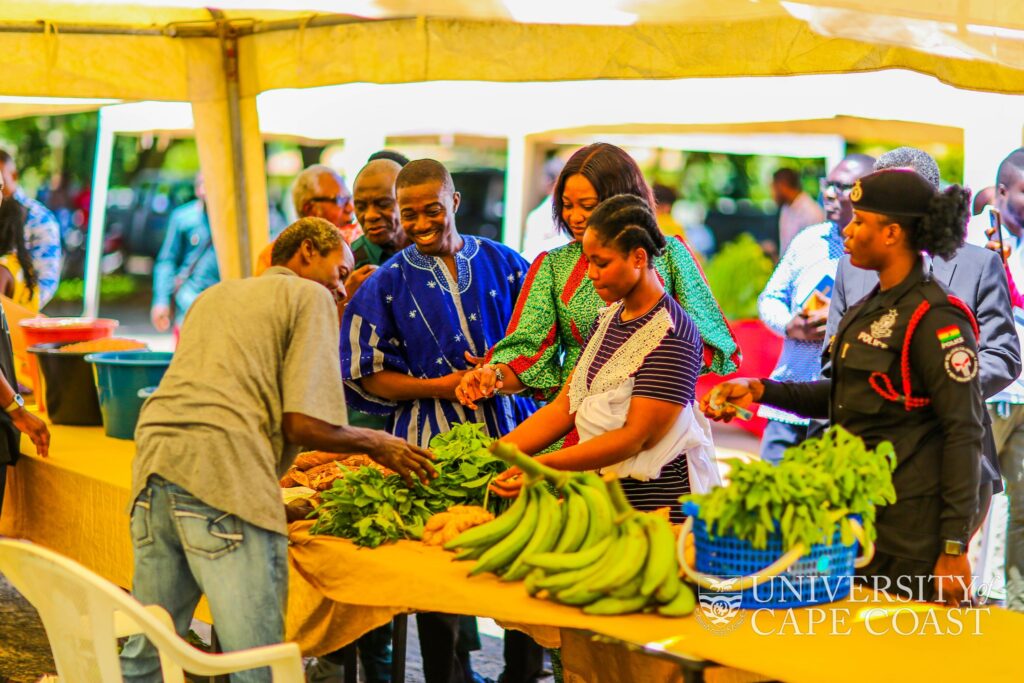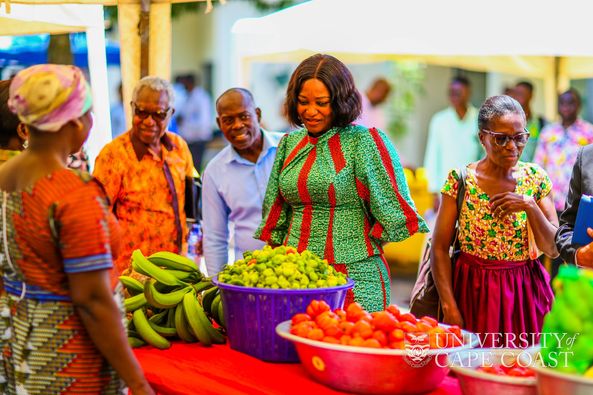The Central Regional Minister has advocated for key stakeholders such as government, departments of food and Agriculture, research institutions, and consumers among others to collectively work together to ensure the nation’s agricultural sector viability.
Mrs Justina Marigold Assan noted that the nation’s economy is built on agriculture, hence the need to work collaboratively to implement measures to increase the sector’s appeal as well as to generate the necessary profit from it.
“Food constitutes an indispensable facet of human survival right from the cradle to the grave. It is sad, however, to note that about 10% (up to 811 million people) of the world’s population regularly go to bed hungry. More so, according to the World Food
Programme (WFP), even at present more than 48 million people are facing emergency levels of hunger, with the threat of acute malnutrition, starvation and death.” She added.
Mrs Assan was speaking at a world food day symposium hosted by the Central Regional Department of Agriculture in conjunction with the University of Cape Coast and the Central Apex Farmers Association (CRAFA).




The symposium was held on Monday, October 17, 2022, alongside the School of Agriculture Farmers Markets 2022 organized as part of activities to commemorate World Food Day.

World Food Day is an international day celebrated every year globally on 16th October to commemorate the date of the founding of the United Nations Food and Agriculture Organization in 1945. The day is widely celebrated by many organisations including the World Food Programme, the World Health Organisation and the International Fund for Agriculture Development, concerned with global hunger and food security.
Addressing students, faculty, farmers, and other agricultural value chain actors, she emphasized that the nation’s inability to exploit the agricultural sector is due to the low value of products which are found in the local market and exported in their unprocessed raw states.
Therefore, she stressed the need for stakeholders to create an enabling environment for the sector to thrive and thereby become attractive.
“the economy of our dear country is predominantly agro-based with the majority of our people engaging in peasant farming, fishing and other quasi activities… If indeed we want to reap the full benefits of agriculture then there is the need for us as a country to put the necessary structures in place, create the enabling environment for the sector to be attractive and thereby create jobs to boost our economy.”
The former Member of Parliament of Twifo Atti-Morkwa constituency, Mr Abraham Odum also emphasized that the only way to achieve the nation’s goal of food security is for people to cultivate the habit of eating locally produced foods.
To him, it is only when the country has learnt and gotten back to eating cultural foods that farmers can also be encouraged to grow such foods in the country.
Now a farmer will grow local rice or local foods and we are depending on outside food how can we have food security? He questioned.
He reiterated that food security begins at home and as such, it is necessary for Ghanaians to do the needful to ensure the nation’s food security.
Read also: UCC @ 60 float draws massive crowd
Source: Emmanuella Ama Gyamfi/ATLFMNEWS




























